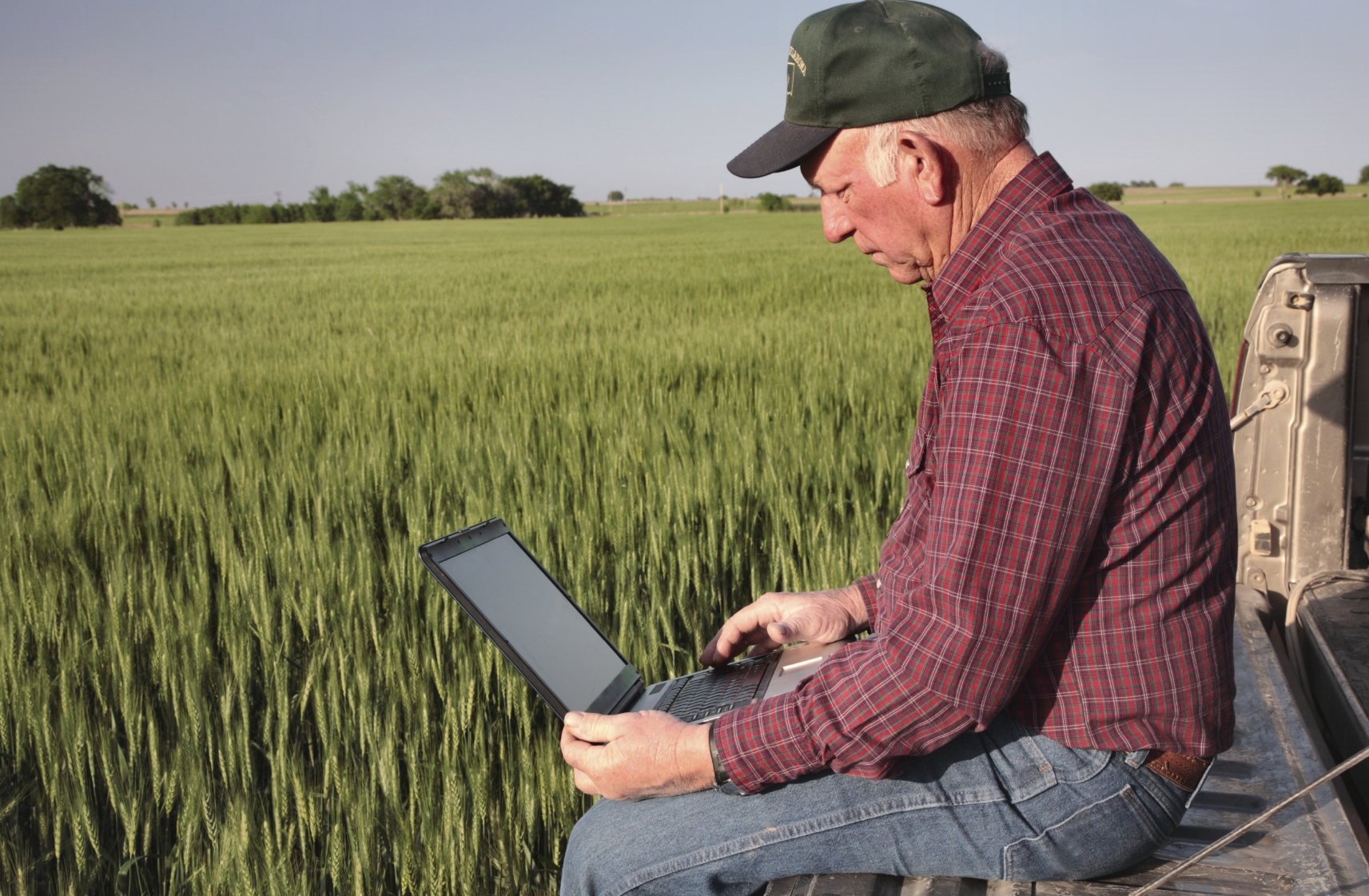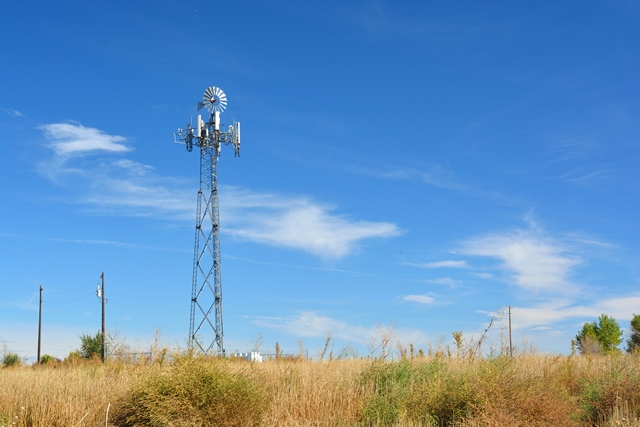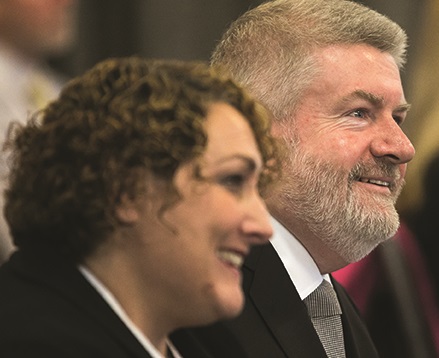Key Dates
Next Grant Round:
Applications for funding will open early 2025.
> Information about our Grants Program
Independent Grants Panel:
Results of the recent EOI will be notified Dec 2024.
> Information about our Panel
We can help: grants@accan.org.au
or phone 02 9288 4000
Subscribe to Grants Program mailings
ACCAN recently submitted to the Australian Treasury’s pre-budget consultation, to provide our views on priorities for the 2023-2024 Australian Budget. Promoting digital inclusion is key to achieving the Australian Government’s Digital Economy Strategy and to boosting productivity and living standards for Australians. ACCAN’s submission calls on the Australian Government to commit to the following in the 2023-2024 Budget:
 This week, the Coalition and Labor both announced that if elected they would commit extra funding to the Mobile Black Spot Programme. The announcement that an extra $60 million in funding will be allocated to the Programme is welcomed by ACCAN.
This week, the Coalition and Labor both announced that if elected they would commit extra funding to the Mobile Black Spot Programme. The announcement that an extra $60 million in funding will be allocated to the Programme is welcomed by ACCAN.
Mobile coverage is a key issue for consumers, particularly those who live in regional, rural, and remote areas. This is clear from the more than 10,600 mobile black spots identified in the Programme so far. Improving mobile coverage is one of ACCAN's ongoing key work priorities.
Read more: Extra funding for Mobile Black Spot Programme
Write comment (0 Comments) The Australian Communications Consumer Action Network (ACCAN) welcomes today’s release of the Federal Government’s report on Complaints Handling and Consumer Redress in the telecommunications industry.
The Australian Communications Consumer Action Network (ACCAN) welcomes today’s release of the Federal Government’s report on Complaints Handling and Consumer Redress in the telecommunications industry.
As Australia’s peak body representing telecommunications consumers, ACCAN has argued that better regulation in telecommunications is needed to safeguard the interests of consumers. The Government’s report acknowledges this need.
Read more: ACCAN welcomes new complaint powers for telco customers
ACCAN recently submitted to the Department of Social Services’ consultation on a new Act to replace the Disability Services Act 1986 (The Act). ACCAN welcomes the commitment of the new Act to affirm the rights and freedoms contained in the United Nations Convention on the Rights of Persons with Disabilities (CRPD). ACCAN’s submission calls for the new Act to:
 A recent ACCAN survey of 100 small businesses found that 96 of the respondents had experienced at least one issue with their telecommunications services. With many small businesses relying on these services to operate, this is a concerning figure. When services don’t deliver, this can mean lost profits and productivity for small businesses.
A recent ACCAN survey of 100 small businesses found that 96 of the respondents had experienced at least one issue with their telecommunications services. With many small businesses relying on these services to operate, this is a concerning figure. When services don’t deliver, this can mean lost profits and productivity for small businesses.
The top issues experienced by the respondents were issues with: internet speeds, internet congestion during peak times, costs and outages. The most prevalent issue was slow data speed, with 73 respondents reporting this problem.
Read more: What telco issues are small businesses experiencing?
Write comment (0 Comments) The Regional, Rural and Remote Communications Coalition (RRRCC) has welcomed the launch of the new Sky Muster Plus service, that will see essential internet uses, such as browsing, email and software updates, exempt from monthly data allowances.
The Regional, Rural and Remote Communications Coalition (RRRCC) has welcomed the launch of the new Sky Muster Plus service, that will see essential internet uses, such as browsing, email and software updates, exempt from monthly data allowances.
Read more: Bush communications coalition welcomes Sky Muster game change
ACCAN recently submitted to the Department of Infrastructure, Transport, Regional Development, Communications and the Arts’ consultation on the draft Telecommunications (Infringement Notice Penalties) Determination 2022. The Draft Determination provides an alternative to instituting court proceedings by establishing a cost-effective and efficient enforcement process for the recovery of a pecuniary penalty. Noting the critical role of Infringement Notices in facilitating compliance, we support:
Read more: Draft Telecommunications (Infringement Notice Penalties) Determination 2022
 This is part three in our series of blogs looking at issues highlighted by ACCAN stakeholders at public hearings for the Productivity Commission’s Inquiry on the Universal Service Obligation (USO).
This is part three in our series of blogs looking at issues highlighted by ACCAN stakeholders at public hearings for the Productivity Commission’s Inquiry on the Universal Service Obligation (USO).
This post looks at affordability concerns highlighted by the South Australian Council of Social Service (SACOSS) and issues raised by ACCAN member, Bruce Bebbington, at the public hearing held in Perth.
Read more: Having a say on the USO (part three)
Write comment (0 Comments) The Australian Communications Consumer Action Network (ACCAN) is frustrated to see that complaints to the Telecommunications Industry Ombudsman (TIO) have increased overall in the annual report. While we acknowledge the trend is beginning to change direction1, it is important to note this is the third consecutive year that consumers have voiced discontent with the services provided by their telco. This demonstrates a clear need for improved customer service and consumer protections.
The Australian Communications Consumer Action Network (ACCAN) is frustrated to see that complaints to the Telecommunications Industry Ombudsman (TIO) have increased overall in the annual report. While we acknowledge the trend is beginning to change direction1, it is important to note this is the third consecutive year that consumers have voiced discontent with the services provided by their telco. This demonstrates a clear need for improved customer service and consumer protections.
Read more: Telcos Need to Improve Customer Service, TIO Complaints Show
ACCAN has responded to the ACCC’s consultation on its Draft Decision regarding the Superfast Broadband Access Service (SBAS) access determination inquiry. The SBAS is a declared wholesale access service that retail service providers (RSPs) can use to supply fixed line superfast broadband services to end users.
ACCAN supports the ACCC’s draft decision to regulate the price and non-price terms of access for the SBAS until July 2026, including:
Read more: Superfast broadband access service – access determination inquiry
 No one wants to be misunderstood
No one wants to be misunderstood
ACCAN is calling on all Government agencies, politicians, political parties and any other organisations that post videos online to ensure their videos have readable captions. It is especially important for politicians, political parties and government agencies to ensure that online video have captions that people can understand in the lead up to the 2016 Federal Election. Find out more about communications consumer priorities for 2016 on ACCAN's Election webpage.
Read more: Captioning videos on YouTube and Facebook
Write comment (0 Comments) ACCAN welcomes the ACCC’s announcement today that Telstra has refunded $9.3 million to 72,000 customers who were misled about third-party billing charges under its “Premium Direct Billing’ (PDB) service. However, the consumer advocacy group argues that further consumer safeguards are needed to prevent bill shock and consumer harm from occurring in the first instance.
ACCAN welcomes the ACCC’s announcement today that Telstra has refunded $9.3 million to 72,000 customers who were misled about third-party billing charges under its “Premium Direct Billing’ (PDB) service. However, the consumer advocacy group argues that further consumer safeguards are needed to prevent bill shock and consumer harm from occurring in the first instance.
“We are pleased to hear that 72,000 Telstra mobile customers will be refunded for content such as games and ringtones that they unknowingly purchased. We have seen that unexpected charges continue to be an issue for Australian mobile consumers and contribute to mobile bill shock,” said Teresa Corbin, ACCAN CEO.
Read more: ACCAN welcomes Telstra’s refunds to customers misled about third-party billing
ACCAN has responded to the Department of Infrastructure, Transport, Regional Development, Communications and the Arts’ consultation on the draft Telecommunications Universal Obligation (Standard Telephone Service – Requirements and Circumstances) Determination 2022. The Draft Determination limits the circumstances in which it is not considered reasonable for Telstra to provide a Standard Telephone Service (STS) upon request.
 In late January/early February members of the Regional, Rural and Remote Communications Coalition attended public hearings to voice concerns on the Productivity Commission’s draft inquiry report on the Universal Service Obligation (USO).
In late January/early February members of the Regional, Rural and Remote Communications Coalition attended public hearings to voice concerns on the Productivity Commission’s draft inquiry report on the Universal Service Obligation (USO).
This post covers the hearings attended by Victorian Farmers Federation (VFF), AgForce Queensland and Better Internet for Rural, Regional & Remote Australia (BIRRR).
Read more: Having a say on the USO (part two)
Write comment (0 Comments) Smartphone technology now essentially allows us to carry a computer in our pocket, but what happens to all of the data that is collected while we go about our normal daily lives? A new report by Australian Communications Consumer Action Network (ACCAN) examines the implications of the advancements in smartphone biometric data capturing capabilities for Australian consumers.
Smartphone technology now essentially allows us to carry a computer in our pocket, but what happens to all of the data that is collected while we go about our normal daily lives? A new report by Australian Communications Consumer Action Network (ACCAN) examines the implications of the advancements in smartphone biometric data capturing capabilities for Australian consumers.
The use of biometrics in smartphones such as finger print scans and facial recognition have been promoted as a simpler and more secure alternative to traditional security options such as PINs or passwords. While these more modern alternatives offer greater convenience, ACCAN’s new report ‘Midas Touch: Consumer Implications of the Use of Smartphone Biometric Data Capturing Capabilities’ argues consumers must be aware that they are not entirely secure.
Read more: Biometrics and the Changing Face of Consumer Smartphone Security
ACCAN responded to the Standing Committee on Communications and the Arts’ inquiry. The Committee has been asked to inquire into and report on the experience, opportunities and challenges for co-investment in multicarrier regional mobile infrastructure.
The availability of mobile coverage continues to be a concern in parts of Australia, and it is important that gaps in telecommunications infrastructure are addressed. As such, ACCAN considers that local communities can benefit from multi-carrier infrastructure. Infrastructure sharing or co-investment in mobile infrastructure can reduce prices and increase network coverage and quality, with pro-competitive effects.
Read more: Inquiry into co-investment in multicarrier regional mobile infrastructure
 The first of many issues in 2017 to be a focus for the Regional, Rural and Remote Communications Coalition was the Productivity Commission’s Draft Report for the Inquiry into the Universal Service Obligation (USO).
The first of many issues in 2017 to be a focus for the Regional, Rural and Remote Communications Coalition was the Productivity Commission’s Draft Report for the Inquiry into the Universal Service Obligation (USO).
The USO underpins consumers’ access to phone services, including payphones. While many may have never heard about the USO, it is an important obligation that aims to ensure voice services are available and accessible to all Australians.
Read more: Having a say on the USO (part one)
Write comment (1 Comment) The Australian Communications Consumer Action Network (ACCAN) welcomes the reappointment of Senator the Hon Mitch Fifield to the position of Minister for Communications and the Arts in Prime Minister Morrison’s newly formed Cabinet.
The Australian Communications Consumer Action Network (ACCAN) welcomes the reappointment of Senator the Hon Mitch Fifield to the position of Minister for Communications and the Arts in Prime Minister Morrison’s newly formed Cabinet.
“As the peak body responsible for representing all Australian telecommunications consumers, ACCAN looks forward to continuing to engage with Minister Fifield and his office to ensure better outcomes for consumers and small businesses,” said Teresa Corbin, ACCAN CEO.
ACCAN recently submitted to the Australia Disability Strategy 2021-2031 (the Strategy) Guiding Principles consultation. The Strategy provides a 10-year plan for improving the lives of Australians with disability. The guiding principles inform the policies/programs/services introduced by governments and businesses to implement the Strategy. This submission was informed by ACCAN’s consultation with our members and was endorsed by Vision Australia, Blind Citizens Australia and Deaf Australia.
ACCAN submitted the following:
Read more: Australia 2021-2031 Disability Strategy Consultation
 The Regional, Rural and Remote Communications Coalition is urging the approximately 1200 households who have not yet switched from the Interim Satellite Service (ISS) to the Sky Muster National Broadband Network (nbn) satellite service to do so as soon as possible.
The Regional, Rural and Remote Communications Coalition is urging the approximately 1200 households who have not yet switched from the Interim Satellite Service (ISS) to the Sky Muster National Broadband Network (nbn) satellite service to do so as soon as possible.
"These households need to switch before 28 February or they will be left without an internet service. They should contact their preferred provider as soon as practicable to arrange a new service," NFF President Fiona Simson said.
Write comment (0 Comments)Peak communications consumer group, the Australian Communications Consumer Action Network (ACCAN), has released a report, called Can You Hear Me?, on the customer service provided by 10 telco providers.
Major findings are that consumers are unimpressed by the amount of time they spend getting a resolution to a telco issue. It takes an average of 13 days, but for those with harder to resolve issues averages blow out to 2 months. The results confirm customer experiences of having to contact providers multiple times about an issue, repeatedly explaining the problem, and disappointing levels of first contact resolution. It also shows that escalating an issue to a formal complaint can be difficult.
Read more: Disappointing Report Card on Telco Customer Service
The Mobile Black Spot Program (MBSP) is an Australian Government initiative that aims to deliver improved mobile coverage and competition through investing in regional, rural, and remote telecommunications infrastructure. Across Australia, the MBSP has provided over 1,270 new mobile base stations, with 1,047 base stations activated in October 2022. In addition to generating more than $875 million in investment.1
The Australian Communications Consumer Action Network (ACCAN) recently commented on the Department of Infrastructure, Transport, Regional Development, Communications and the Arts (the Department) request for feedback on the grant opportunity guidelines for a new Improving Mobile Coverage Round of the MBSP. In our submission, ACCAN suggested that the Department should:
Read more: Mobile Black Spot Program Improving Mobile Coverage Round Grant Opportunity Guidelines
 This week a Federal Parliamentary Committee is expected to report on a draft bill to amend the Competition and Consumer Act telco specific provisions. In this blog we will outline our assessment of the impact on consumers. This is the approach we took in our response to the Department of Communications and the Arts consultation on the proposed changes in October 2016.
This week a Federal Parliamentary Committee is expected to report on a draft bill to amend the Competition and Consumer Act telco specific provisions. In this blog we will outline our assessment of the impact on consumers. This is the approach we took in our response to the Department of Communications and the Arts consultation on the proposed changes in October 2016.
Not surprisingly, Telstra is generally supportive of the removal of the telco specific rules. However, other telecommunications industry providers are taking a different approach as they believe the removal of the specific rules would weaken competition in the telco sector.
Read more: Our take on the telco specific competition law reforms
Write comment (0 Comments)ACCAN welcomes the release today of the public comment draft Telecommunications Consumer Protections Code, but says it doesn’t go far enough in providing adequate consumer protections for today’s telecommunications landscape.
The Telecommunications Consumer Protections (TCP) Code has been released for public comment by peak industry body Communications Alliance. Submissions are due by August 10.
The Code sets out requirements for Retail Service Providers (RSPs) relating to sales, customer service, contracts, billing, credit and debt management, financial hardship, transfers between providers and the compliance framework. It is a key component in the consumer protection framework for the telecommunications industry.
Read more: Draft Telecommunications Consumer Protections Code released for public comment
